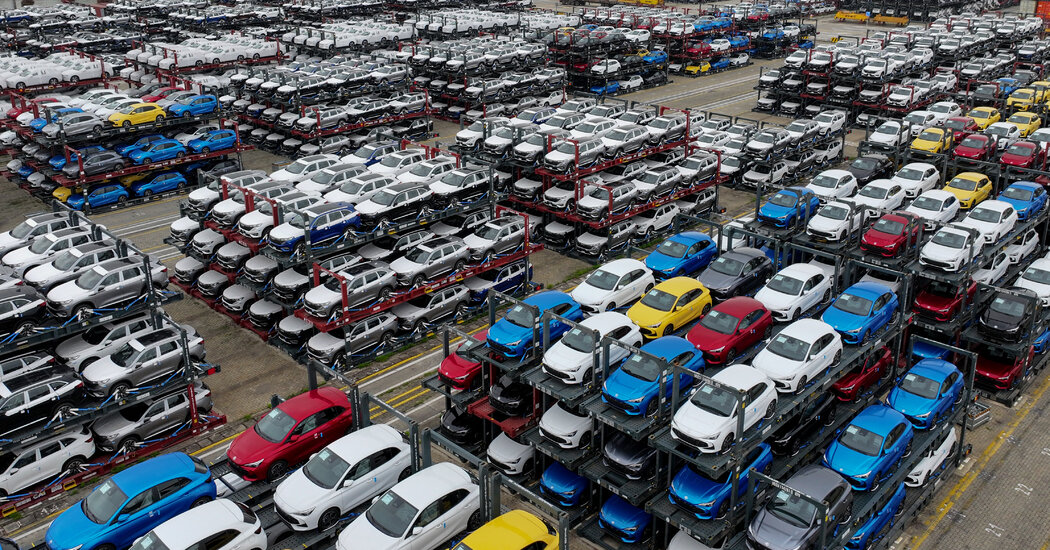Advertising
Supported by
Beijing’s dominance raises economic and security concerns, and tensions will be at an all-time high at this week’s assembly of top weather diplomats.
By Somini Sengupta
Somini Sengupta reported on international relations for The Times before joining the Climate Desk.
The world’s two toughest countries, the United States and China, will meet this week in Washington to discuss climate change and also their problems at appointments.
In an ideal world, where the transition to electric power would be the most sensible priority, they would live in friendlier conditions. Perhaps affordable electric cars made in China would be widely sold in the U. S. They are perceived as an economic threat. There would be less desire to dig a lithium mine on an environmentally sensitive site in Nevada, because lithium, which is essential for batteries, can be purchased without worry in China, which controls the world’s supply.
Instead, in a real, less-than-ideal world, the United States balances two opposing goals. The Biden administration wants to reduce greenhouse gas emissions by encouraging other people to buy things like electric cars and solar panels, but it also wants other people to buy American products. products, not Chinese. Their fear is that China’s dominance in the global market for those critical technologies will harm the U. S. economy and national security.
These competing targets will be at the center of discussions on Wednesday and Thursday when the Biden administration’s most sensible weather envoy, John Podesta, meets with his Beijing counterpart, Liu Zhenmin, for the first time in Washington.
Trade tensions will most likely loom over their meetings.
The flood of Chinese exports, especially in solar panels and other green energy technologies, is a real sore point for the Biden administration, which is looking to bring the same industries to life on U. S. soil. Podesta harshly criticized China for “distorting the global market for blank energy products such as sun, batteries, and critical minerals. “
In addition, it has created an organization tasked with examining tactics to restrict imports from countries with a high carbon footprint, a practice it has called “carbon dumping. “This was perceived as a veiled reference to China.
We are retrieving the content of the article.
Please allow javascript in your browser settings.
Thank you for your patience as we determine access. If you’re in player mode, log out and log in to your Times account or subscribe to the full Times.
Thank you for your patience as we determine access.
Already a subscriber? Sign in.
Want all the Times? Subscribe.
Advertising

